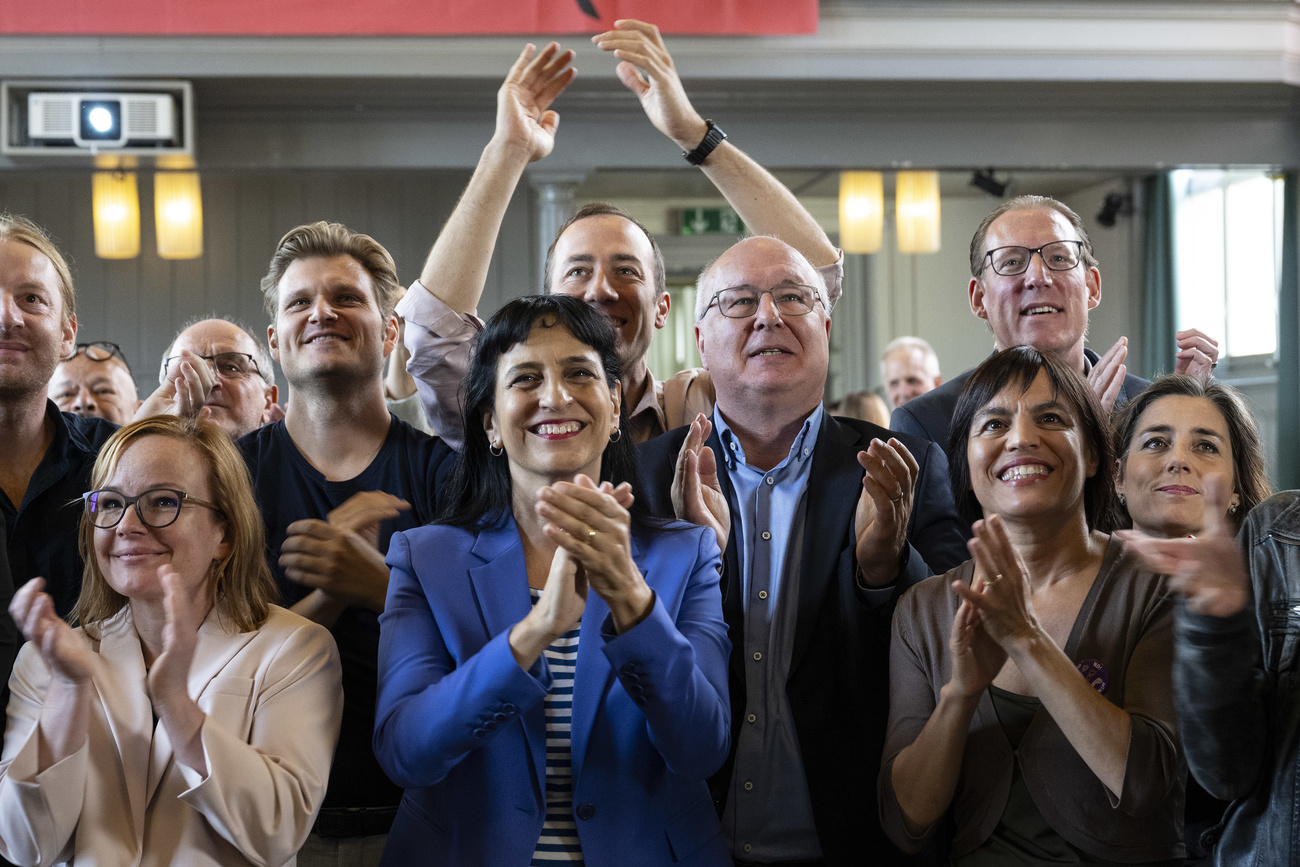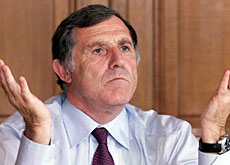Swiss underpin alternative Middle East peace talks

Israeli and Palestinian politicians are expected to sign a peace agreement in Geneva next month, seen as an alternative to the United States-backed “road map”.
Dubbed the “Geneva Accord”, the peace plan was finalised in Jordan at the weekend with the support and financial backing of the Swiss government.
The full details of the plan are due to be released at the Geneva meeting, which – according to the Israeli daily newspaper “Haaretz” – could take place on November 4.
Serge Ronen, a journalist working for Swiss radio, told swissinfo that this had been confirmed by sources close to the Israeli government.
The Swiss foreign ministry refused to give any details about the Geneva meeting, but confirmed Bern’s involvement in the Jordan talks.
“The participating parties managed to finalise a document, which could be a draft for a possible peace accord between the two conflicting parties,” spokeswoman Daniela Stoffel-Fatzer told swissinfo.
The draft is the result of two years of secret negotiations between Israel and the Palestinian Authority, supported by the Swiss government.
The parties involved in the negotiations – members of the Israeli opposition and Palestinian representatives – have hailed the accord as a blueprint for ending the Middle East conflict.
No future
However, the Israeli prime minister Ariel Sharon dismissed the agreement, saying on Monday that it had “no chance of serving as a basis for serious negotiations”.
Those close to Sharon said the peace plan could lead to tensions between Israel and Switzerland.
Ehud Barak, who was prime minister of Israel from 1999 to 2001, added that the proposed plan had no future and called it an “illusion”.
Pascal de Crousaz, a Swiss Middle East expert, also expressed doubts that the accord had any chance of being adopted in the future.
“I don’t see this accord becoming effective, but we should remember that during the first Intifada these kinds of talks were being held,” he told swissinfo.
“The talks at the Notre-Dame convent in Jerusalem were the first steps towards the Oslo peace accords in 1993, so it’s not impossible that this deal could play the same role in the future.”
Completely finalised
According to Attallah Kheiry, the Palestinian representative in Amman, the draft has been finalised and is ready to be adopted.
“The draft deals with all the hot issues such as the status of Jerusalem, the settlers, prisoners and the security wall that is currently being built,” he said.
The Arabic newspaper “Al-Quds” said a key trade-off was that Palestinians would not demand the right of return for refugees.
The paper added that the Palestinians would get sovereignty over one of the most disputed religious places in the Middle East: Jerusalem’s Nobel Sanctuary or Temple Mount.
Swiss Accord
De Crousaz said the diplomatic process reminded him of the Oslo Accords, signed in September 1993 and containing a set of mutually-agreed general principles regarding a five-year interim period of Palestinian self-rule.
And as with the previous set of Norwegian-brokered accords, much would depend on whether the Israeli government decided to get involved, added de Crousaz.
“This time we don’t know if Sharon is prepared to do the same,” he said.
But de Crousaz believes that in terms of making a breakthrough, Switzerland has an advantage over European Union member countries.
“The Israelis only really trust the Americans, but the fact that Switzerland is outside of the EU means that the Swiss are not tarred with the same brush,” he said.
swissinfo with agencies
Around 3,000 people have been killed since the Al-Aqsa Intifada broke out in September 2000.
The Oslo Accords were signed in Washington on September 13, 1993.
The accords provided for a transitional period not exceeding five years of Palestinian interim self-government in the Gaza Strip and the West Bank.
The alternative peace plan, which was drawn up in Jordan, is still unofficial.
The leader of Israel’s opposition Labour party, Yossi Beilin, and the Palestinian information minister, Yasser Abed Rabbo, chaired the meeting.
About 40 Israeli opposition leaders and former Palestinian cabinet ministers and human rights activists attended the meeting.
According to the authors of the plan the Palestinians will not demand the right of the return for refugees.
In exchange Israel said the Palestinians would get sovereignty over the site in Jerusalem known to the Israelis as the “Temple Mount” and to Arabs as the “Noble Sanctuary”.
The alternative peace accord comes after two years of secret negotiations between the Palestinians and Israelis.

In compliance with the JTI standards
More: SWI swissinfo.ch certified by the Journalism Trust Initiative











You can find an overview of ongoing debates with our journalists here . Please join us!
If you want to start a conversation about a topic raised in this article or want to report factual errors, email us at english@swissinfo.ch.